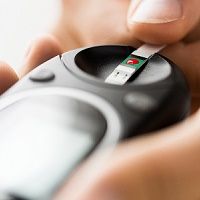Type 2 Diabetes and Sleep: Disturbances are Common
Type 2 diabetes increases the risk of both nocturnal intermittent hypoxia and sleep fragmentation, and type 2 diabetics are up to 20 times more likely to suffer from sleep apnea-hypopnea syndrome.

Type 2 diabetes increases the risk of both nocturnal intermittent hypoxia and sleep fragmentation, and type 2 diabetics are up to 20 times more likely to suffer from sleep apnea-hypopnea syndrome.
Previous studies suggested poor sleep also increases the risk of type 2 diabetes. Improving blood glucose control quickly reduces oxygen desaturation during sleep. Experts have said formal sleep studies are too costly and time-consuming to use in large and diverse populations, and past research supports the use of questionnaires to measure sleep quality in large populations.
A team of Spanish researchers have found that type 2 diabetes and elevated fasting blood glucose are independent predictors of daytime sleepiness and poor sleep quality in a new study published in PLOS ONE.
This case control study enrolled 413 type 2 diabetes patients and 413 age, gender, BMI, and waist and neck circumference matched non-diabetics. The researchers performed polysomnographies, measured daytime sleepiness with the Epworth Sleepiness Scale, and measured sleep quality with the Pittsburgh Sleep Quality Index.
One in four participants experienced excessive daytime sleepiness, which is associated with less willingness to self-manage type 2 diabetes.
The majority of type 2 diabetics in this study experienced “poor sleep”.
Poor sleep quality was compounded by the increased likelihood of peripheral neuropathy pain, nocturia, sleep apnea, and restless leg syndrome.
Excessive daytime sleepiness typically peaks after meals and has been associated with high fasting blood glucose levels, but this study did not obtain fasting or postprandial glucose levels from participants.
Type 2 diabetes and elevated fasting blood glucose are independent risk factors for daytime sleepiness and poor sleep quality. Researchers suggested that future prospective studies should measure the impact of blood glucose control on sleep. The study authors recommend providers screen type 2 diabetics for and educate on proper sleep hygiene and refer patients to sleep medicine specialists if needed.